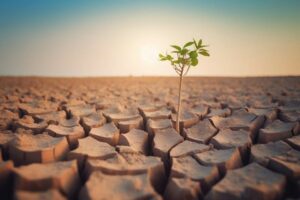Adaptation refers to the ability of an individual or organism to adjust to changing circumstances or environments. This can involve behavioural, physiological, or genetic changes that allow individuals to survive and thrive in new or challenging conditions.
Adaptation is a key concept in biology, ecology, and evolutionary theory, and is essential for the survival and success of species. Through adaptation, organisms can develop new behaviours or physical traits that allow them to survive in challenging environments or exploit new resources. For example, desert plants have developed adaptations such as deep roots and small leaves to conserve water, while some animals have developed camouflage or other forms of protection to avoid predators.
Adaptation is also an important concept in personal and professional development, as it involves the ability to respond to changing circumstances and to learn from experience. Individuals who are able to adapt to new challenges or situations are often more successful and resilient than those who struggle with change or are resistant to new ideas.
To develop adaptability, it is important to cultivate a growth mindset, which involves a willingness to learn and to embrace new experiences and challenges. This may involve seeking out new opportunities for learning and growth, trying new things, and taking risks. It may also involve developing strategies for coping with stress and uncertainty, such as mindfulness, meditation, or exercise.
In summary, adaptation is a key concept in biology and evolutionary theory, as well as in personal and professional development. By cultivating adaptability and resilience, individuals can thrive in changing circumstances and learn from new experiences, ultimately leading to greater success and fulfilment in life.
Adaptation
To improve your adaptation skills, consider the following strategies:
* Embrace change: Accept that change is a natural part of life, and be open to new experiences and opportunities.
* Develop a growth mindset: Cultivate a belief that you can learn, grow, and develop new skills in response to challenges.
* Practice problem-solving: Tackle difficulties by generating creative solutions and learning from the process.
* Seek support: Reach out to friends, family, or professionals for guidance and encouragement during times of change.
* Maintain a balanced perspective: Focus on the positives and the potential for growth, rather than dwelling on setbacks or perceived failures.
* Embrace change: Accept that change is a natural part of life, and be open to new experiences and opportunities.
* Develop a growth mindset: Cultivate a belief that you can learn, grow, and develop new skills in response to challenges.
* Practice problem-solving: Tackle difficulties by generating creative solutions and learning from the process.
* Seek support: Reach out to friends, family, or professionals for guidance and encouragement during times of change.
* Maintain a balanced perspective: Focus on the positives and the potential for growth, rather than dwelling on setbacks or perceived failures.
Adaptation is closely related to mental health, as it encourages individuals to embrace change and develop effective coping strategies. By cultivating adaptation skills, individuals can enhance their resilience and emotional well-being, enabling them to navigate life's challenges with greater ease and confidence. Furthermore, adaptation fosters personal growth and self-awareness, contributing to overall mental health and well-being.
To manage stress during periods of adaptation:
* Practice self-care: Prioritise activities that promote relaxation, such as exercise, meditation, or engaging in hobbies.
* Set realistic expectations: Acknowledge that change can be challenging and that it is normal to experience setbacks or difficulties.
* Communicate with others: Share your feelings and experiences with friends, family, or professionals, who can provide support and encouragement.
* Develop healthy coping strategies: Replace maladaptive coping mechanisms with healthier alternatives, such as mindfulness, deep breathing, or journaling.
* Celebrate progress: Recognise and reward your accomplishments during the adaptation process, no matter how small they may seem.
* Practice self-care: Prioritise activities that promote relaxation, such as exercise, meditation, or engaging in hobbies.
* Set realistic expectations: Acknowledge that change can be challenging and that it is normal to experience setbacks or difficulties.
* Communicate with others: Share your feelings and experiences with friends, family, or professionals, who can provide support and encouragement.
* Develop healthy coping strategies: Replace maladaptive coping mechanisms with healthier alternatives, such as mindfulness, deep breathing, or journaling.
* Celebrate progress: Recognise and reward your accomplishments during the adaptation process, no matter how small they may seem.
Related Semantic Entities for Adaptation

